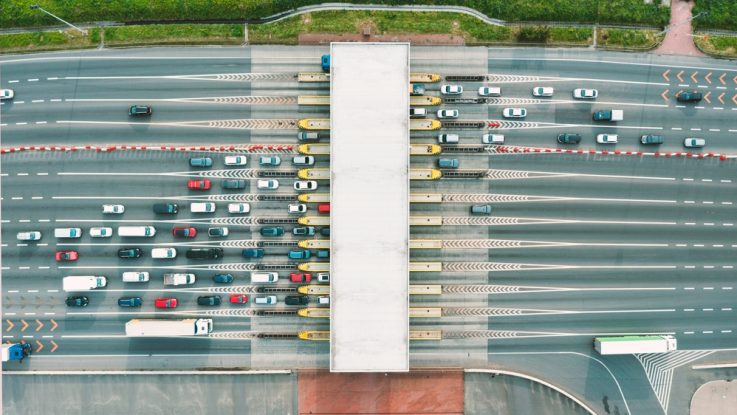
New York City’s Metropolitan Transportation Authority Board (MTA) has approved the toll rates for the country’s first congestion pricing plan. The Central Business District Tolling Program (CBDTP) has the goal of managing congestion, improving mobility, and reducing emissions to improve air quality and the overall quality of life for its residents and visitors. A study in 2021 found that New York City was the most congested city in the United States, and MTA notes that over 700,000 vehicles enter the CBD every weekday.
The new system is expected to: reduce daily vehicle-miles traveled (VMT) within the Manhattan CBD by at least 5%; reduce the number of vehicles entering the Manhattan CBD daily by at least 10%; and create a funding source for capital improvements and generate sufficient annual net revenues to fund $15 billion for capital projects for the MTA Capital Program. Revenues from the CBD Tolling Program will be split between New York City Transit (80%), Long Island Rail Road (10%) and Metro-North Railroad (10%). MTA states that similar congestion pricing programs in London, Stockholm, Singapore, and Milan have proven successful.
Under the new congestion pricing program, drivers will be charged a toll on their E-ZPass to enter the Manhattan CBD, or will be mailed a toll bill to the address of the registered vehicle. The toll prices will vary based on time of day or the amount of congestion currently in the area. Emergency vehicles, vehicles transporting people with disabilities, commuter, transit and school buses, and public-works government vehicles will be exempted from the toll. Passenger vehicles – such as taxis and for-hire vehicles – will be tolled no more than once a day, and a reduced overnight toll rate will be applied from at least 12:00 a.m. to 4:00 a.m. Discounts and tax credits will also be available for qualifying drivers and residents based on income and frequency of travel.